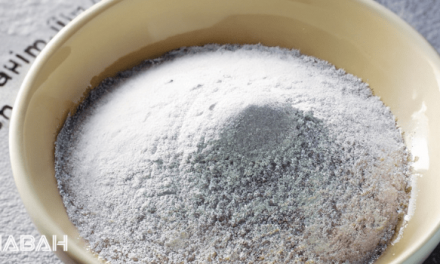Gum arabic is a widely used food additive found in countless products, from candies and beverages to baked goods and more. However, with its widespread use, some questions have arisen regarding its halal status according to Islamic dietary laws. In this comprehensive blog post, we’ll explore in depth whether gum arabic is considered halal (permissible) or haram (impermissible) to consume.
Gum arabic is a natural, plant-derived ingredient that has been used for centuries in various traditional foods and medicines. It’s praised for its versatility, as it can act as a stabilizer, thickening agent, emulsifier, and more in food and beverage products. Given its long history and acceptance in many cultures, it’s understandable that Muslim consumers would want to know if this popular food additive meets the requirements of halal.
In this article, we’ll dive deep into the topic of gum arabic and halal. We’ll start by defining what gum arabic is and how it’s produced. Then, we’ll explore Islamic dietary guidelines, religious rulings from major Islamic scholarly bodies, certifications from reputable halal authorities, and other factors that impact the halal status of this ingredient. Finally, we’ll provide practical tips for Muslim consumers to identify and purchase halal gum arabic products with confidence.
What is Gum Arabic?
Gum arabic, also known as acacia gum, is a natural gum made of hardened sap taken from the stems and branches of the acacia tree. It is used as a stabilizer, thickening agent, emulsifier, and more in many food and beverage products.
Gum arabic is sourced from two main acacia species:
- Acacia senegal: Native to Sudan and parts of the Sahel region of Africa
- Acacia seyal: Native to parts of Africa, the Arabian peninsula, and West Asia
These acacia trees secrete a sap that hardens into nodules called “tears” which are manually harvested. The gum is then purified and processed into a powder or liquid form for use as a food additive.
Gum arabic is generally considered a vegan and plant-based ingredient, as it is derived directly from the acacia tree with minimal processing. It is a complex mixture of glycoproteins and polysaccharides isolated from the two acacia species mentioned above.
Production Process
The process of producing gum arabic involves several key steps:
-
Harvesting: Acacia trees are tapped, and the sap is allowed to slowly ooze out and harden into tear-shaped nodules on the tree’s branches and trunk.
-
Collection: These hardened “tears” of gum arabic are manually collected by hand from the trees.
-
Sorting and Cleaning: The collected gum arabic is sorted, cleaned, and graded based on quality and color.
-
Grinding and Milling: The cleaned gum is ground into a fine powder form.
-
Packaging and Distribution: The powdered gum arabic is packaged and distributed for use in various industries, primarily food and beverages.
Throughout this process, no additional ingredients are typically added to the gum arabic. It remains a pure, plant-derived substance from start to finish.
Is Gum Arabic Halal According to Islamic Law?
To understand the halal status of gum arabic, we must first review some core guidelines around halal foods in Islam.
Halal Food Guidelines
Islamic law, based on the teachings of the Quran and the Sunnah the traditions of the Prophet Muhammad (pbuh), provides clear guidance on what foods and ingredients are considered halal (permitted) and haram (prohibited).
In general, foods derived from plants and plant sources are considered halal, while foods from haram sources like pork, carnivorous animals, or any intoxicating substances are strictly prohibited. Ingredients and products are also deemed haram if they contain impurities, have been contaminated with non-halal substances, or involve any animal cruelty during their production process.
Religious Rulings on Gum Arabic
Given the plant-based nature of gum arabic, major Islamic scholarly bodies and schools of jurisprudence have weighed in on the question of whether it is halal. The consensus opinion seems to be that gum arabic is halal permissible to consume based on the following factors:
- The acacia tree, from which gum arabic is derived, is a permissible plant source according to Islamic law.
- The extraction and processing of gum arabic does not involve the use of any haram ingredients or substances.
- There is no evidence of contamination with non-halal substances during the production process.
- The manufacturing methods used do not involve any cruel treatment of animals or other practices prohibited by Islamic principles.
However, it’s important to note that there are some minority dissenting views that consider gum arabic potentially haram due to various reasons. For a balanced perspective, it’s crucial to be aware of these differing scholarly opinions and interpretations.
Some scholars may argue that certain processing methods, such as the use of specific solvents or chemicals, could render gum arabic haram. Others may raise concerns about potential cross-contamination during manufacturing, storage, or transportation. These factors could vary depending on the specific manufacturer or supplier.
Overall, while the consensus leans toward gum arabic being inherently halal, there may be some variations in this ruling based on different manufacturers, production processes, and Islamic interpretations.
Certifications and Oversight
To provide further assurance of halal status, many major halal certification bodies around the world have reviewed the sources, ingredients, and manufacturing processes of gum arabic and have certified it as a halal ingredient when properly sourced and produced by manufacturers.
These third-party certifications offer an additional layer of oversight and validation that the gum arabic meets strict halal guidelines. Some key halal certifications to look for include:
-
IFANCA (Islamic Food and Nutrition Council of America): One of the largest and most respected halal certification bodies in the United States and globally. They certify various gum arabic products as halal.
-
ISWA (Islamic Society of the Washington Area): A well-known halal certifier in the United States that has certified several gum arabic brands and suppliers.
-
HFA (Halal Food Authority): A leading halal certification body based in the United Kingdom that also certifies gum arabic products.
-
Regional and national halal authorities: Many countries have their own government-backed or recognized halal certification organizations that evaluate and approve gum arabic as a halal ingredient.
By checking for these reputable certifications on product packaging or manufacturer websites, Muslim consumers can gain additional confidence in the halal status of the gum arabic used.
Other Considerations for Gum Arabic
While the consensus among Islamic scholars and halal certification bodies leans toward gum arabic being inherently halal, there are a couple of additional factors to be aware of:
Potential Contamination
Even though gum arabic is plant-based and generally considered halal, there is always a risk of accidental contamination during the manufacturing process, storage, transportation, or through shared equipment and facilities.
Cross-contamination with non-halal substances, such as traces of forbidden ingredients or impurities, could potentially render some batches of gum arabic as haram. This risk is present in any large-scale food production system and is one of the reasons why halal certification is so important.
Reputable manufacturers and suppliers take great care to implement strict protocols and procedures to prevent cross-contamination and maintain the halal integrity of their products. However, Muslim consumers should still exercise caution and vigilance in checking for halal certifications and reputable brands.
Health and Safety
From a health and safety perspective, gum arabic is generally recognized as safe (GRAS) by the United States Food and Drug Administration (FDA) for use as a food additive. It has a long history of use in traditional foods and medicines and is considered relatively low-risk for most people when consumed in moderation.
However, it’s important to note that in large quantities, gum arabic may potentially cause mild gastrointestinal issues like bloating, gas, or digestive discomfort in some individuals. Additionally, those with specific allergies or sensitivities should always exercise caution and consult with their healthcare providers before consuming any new food additives or ingredients.
While gum arabic is generally safe for most people, it’s always wise to consume any food additive in moderation and to be mindful of your body’s reactions.
Tips for Identifying Halal Gum Arabic Products
As a Muslim consumer, it’s crucial to exercise due diligence in ensuring that the products you consume, including those containing gum arabic, meet the requirements of halal. Here are some practical tips to help identify and purchase halal gum arabic products:
-
Look for halal certification logos/stamps: Carefully scan the packaging of products containing gum arabic for reputable halal certifying bodies as mentioned earlier, such as IFANCA, ISWA, HFA, and regional/national authorities. These logos and stamps provide visual assurance that the product has been certified as halal.
-
Research brands and manufacturers: Many leading food and beverage brands publicly advertise their gum arabic as being halal certified. Take some time to research popular brands and manufacturers to understand their halal policies and certifications. This information is often readily available on their websites or through customer service channels.
-
Ask local Islamic authorities: If you have any lingering doubts or questions about a specific product or brand, don’t hesitate to reach out to local mosques, imams, or Islamic organizations in your community. They can provide guidance, clarification, and recommendations on specific brands or suppliers of halal gum arabic.
-
Read ingredient lists carefully: While gum arabic itself is generally considered halal, you should also carefully read the full ingredient lists of any products containing it. Look out for any other potentially concerning ingredients that may be non-halal.
-
Choose trusted and transparent brands: When possible, opt for well-known brands and manufacturers that are transparent about their halal certifications, sourcing, and production processes. Larger, reputable companies are often more committed to maintaining strict halal standards and are less likely to risk cross-contamination.
By following these tips and exercising due diligence, Muslim consumers can feel more confident about safely including gum arabic, a versatile and popular food ingredient, within a halal diet.
Conclusion
In summary, while there are some differing opinions and interpretations among Islamic scholars, the overall consensus is that gum arabic should be considered halal permissible if properly sourced from the acacia tree and processed without any contamination by haram substances or practices prohibited by Islamic principles.
However, it’s important to acknowledge that there can be variations in this ruling based on different manufacturers, production processes, and individual scholarly opinions. As always, it’s crucial for Muslim consumers to exercise personal due diligence by checking for trusted halal certifications, researching brands and ingredients, and consulting local religious authorities when in doubt.
With care, awareness, and a commitment to following Islamic dietary guidelines, Muslim consumers can feel confident about including gum arabic, a versatile and popular food additive, within a halal diet. By staying informed, making wise choices, and seeking guidance when needed, they can ensure their consumption aligns with their religious beliefs and values.
Frequently Asked Questions: Is Gum Arabic Halal?
Yes, Gum Arabic is considered halal as it is a plant-derived ingredient that is generally recognized as halal. It is also known as a popular halal ingredient used in food and beverage products.
What is Gum Arabic also known as?
Gum Arabic is also known as gum acacia, and it is derived from two species of the acacia tree.
Is Gum Arabic halal certified?
Yes, there are halal certified sources of Gum Arabic available for those looking for specific halal certification.
What are the key characteristics of Gum Arabic?
Gum Arabic is a plant-derived gum that is used as a thickener, emulsifier, and fiber in various food and beverage products.
Is Gum Arabic considered kosher?
Yes, Gum Arabic is considered kosher and is commonly used in products that comply with kosher dietary requirements.
Are there any restrictions on the use of Gum Arabic in certain countries?
While Gum Arabic is generally recognized as safe for consumption, some countries may have specific regulations regarding its use in food products.
Why is Gum Arabic considered halal?
Gum Arabic is considered halal because it is a natural ingredient derived from plants and does not contain any ingredients that are considered haram or forbidden in Islam.





